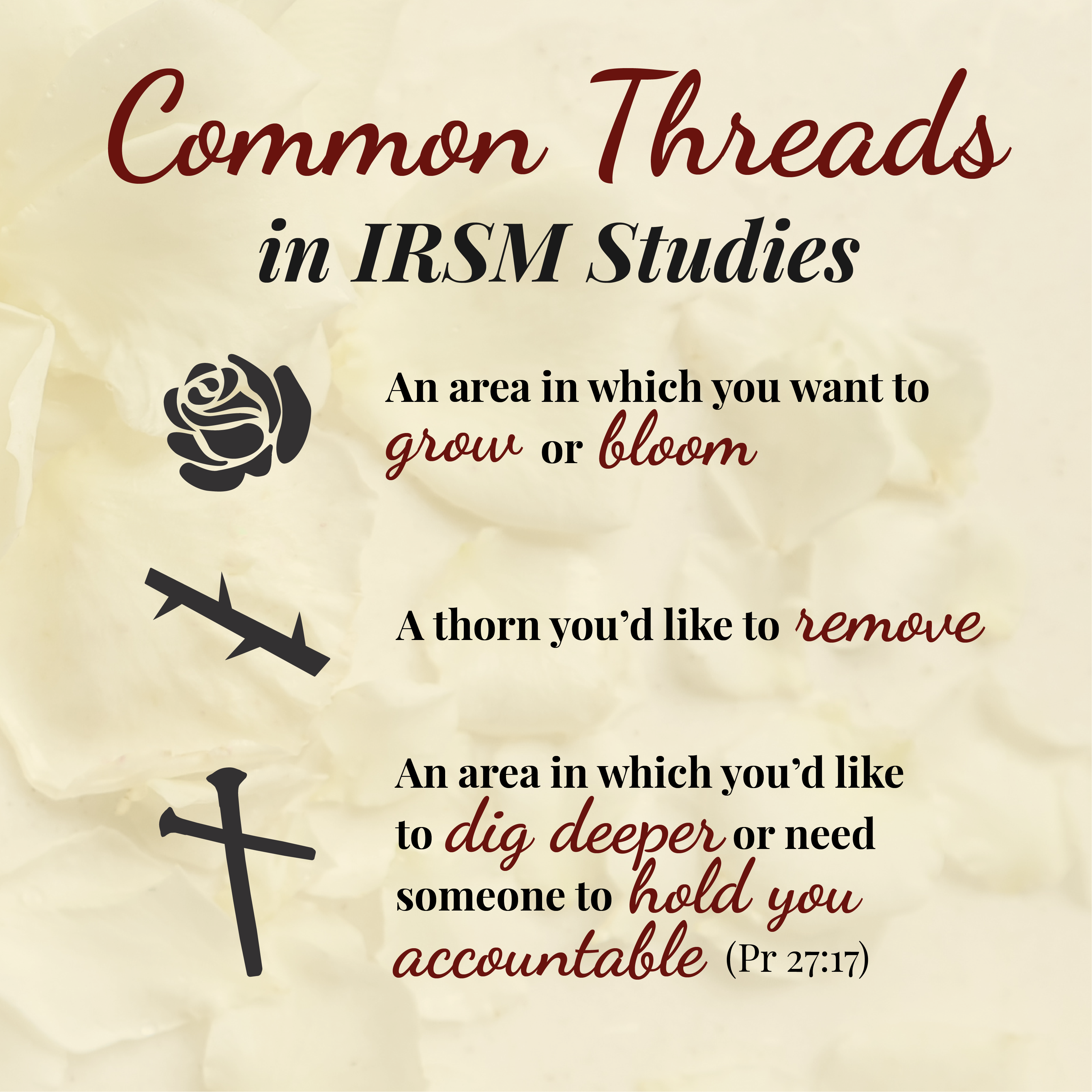-
A Commitment to Hospitality
 Introduced by Michelle J. Goff, then written by her mother, Jocelynn Goff, both in Arkansas
Introduced by Michelle J. Goff, then written by her mother, Jocelynn Goff, both in ArkansasMy mother has always modeled hospitality. Growing up, almost every Sunday we had someone over for lunch—people of different languages, cultures, and backgrounds. In honor of this week’s emphasis on commitment to one another as shown through hospitality, I can think of no better candidate to share one of her many stories. In her own words…
One Sunday many years ago in “early marriage days,” my husband came up to me after church saying, “See that man over there? I invited him for lunch.” “You did what?!” I asked incredulously as I looked at the man who had just walked into the church building that morning. He looked like he had slept in his ill-fitting suit. He had huge dandruff flakes all over the shoulders of his suit and in his eyebrows, in other words, a less than appealing presence of a man. I said, “He’s a stranger and we’ve got a baby to think about.” My husband replied, “I thought of that. That’s why I invited the preacher and his wife for lunch as well.” Again, my reply was, “You did what?!” I only have a one-pound meatloaf in the oven. We don’t have enough.” My husband gently said, “We have plenty. This man has $2.32 to his name and needs a bus ticket and ride to the bus station to get to his family. He came to the church for help.” Oh my! I was immediately humbled and changed my response to a prayer. “Dear Lord, please forgive my harsh, immediate judgment and please provide enough for us to share as You did with the small boy’s lunch of five loaves and two fish.” This was my prayer all the way home from church as I was also thinking of what else to add to the one-pound meatloaf.
When we arrived home, I got the meatloaf out of the oven and noticed that it had actually shrunk, not grown. “Oh my! Dear Lord, we still need a miracle multiplication here like You did with the small boy’s lunch.” I added to the meatloaf meal three cans of green beans, two boxes of macaroni and cheese, and a can of fruit cocktail with a sliced banana. Then I sliced the meatloaf and served the meal.
Everyone was served some of everything: meatloaf, macaroni and cheese, green beans, and fruit salad. We had pleasant conversation over lunch. The preacher and his wife agreed to take the man to the bus station and the church would pay for his bus ticket so he could go home to family.
After lunch when everyone had left, I cleared off the table and noticed the meatloaf. Do you know what? I had meatloaf left over! Everyone had been served, yet there was meatloaf left over. I remember in Mark’s account of the Feeding of the Five Thousand, “They all ate and were satisfied, and the disciples picked up twelve basketfuls of broken pieces of bread and fish” (Mk 6:42-43 NIV).
So, the next day as I ate a sandwich made with leftover meatloaf, I was again reminded of my prayer for God to multiply the meatloaf as He did with the loaves and fish and He did, and He gave me leftovers as a reminder of His abundant provision.
My reflection afterward was also on the scripture, Hebrews 13:2, “Do not forget to show hospitality to strangers, for by so doing some people have shown hospitality to angels without knowing it.” While I do not know if this man was an angel, I do know that every time I remember this event, it causes me to reflect on this verse and consider the real meaning of hospitality. We often think it’s opening our home to our family and friends. Actually, that is fellowship.
Fellowship is when connectedness or relationship is shared among those with a common aim or background. Hospitality is providing an act of service of welcoming, receiving, hosting, or entertaining guests or strangers. It’s an act of service, often to the least of these. In Matthew 25:40 Jesus says, “Truly I tell you, whatever you did for one of the least of these brothers and sisters of mine, you did for me.” As I’m sure you, like I, want to serve Jesus Himself then we must learn to serve the “least of these.” This provides the greatest blessing to them, to us, and is Kingdom living.
-
Broader Hospitality
 Written by Rianna Elmshaeuser, volunteer with Iron Rose Sister Ministries in Colorado
Written by Rianna Elmshaeuser, volunteer with Iron Rose Sister Ministries in ColoradoShare with the Lord’s people who are in need. Practice hospitality. (Ro 12:13 NIV)
Do not forget to show hospitality to strangers, for by so doing some people have shown hospitality to angels without knowing it. (Heb 13:2)
Offer hospitality to one another without grumbling. (1Pe 4:9)As a child, whenever I thought of hospitality, I would think of having people over for a nice meal, good conversation, and dessert. My parents did this often and I loved sitting and listening to the adults tell stories and laugh with each other. As an adult in a city with absurdly high housing prices, I cannot afford a home large enough to have more than one person over at a time. I do have a large backyard and on nice summer evenings, I can accommodate a larger group, but mostly I’m limited in this form of hospitality.
The good news for me is that there are other forms of hospitality and I think that is what the Bible is conveying more than merely having someone come to your house. Jesus did not have a home to invite people over for dinner either. In fact, he often needed a place to stay for himself and his followers, yet Jesus is the ultimate picture of hospitality. The Greek word used in Romans 12:13 for hospitality means “love of a stranger.” I know many people who open their homes and are excellent hosts for small group meetings, dinners, and game nights. In contrast, you may have been invited to the house of a person in which you did not feel welcome or comfortable. There are many reasons I have felt uncomfortable in a home, including it was so clean I was scared to step off the welcome mat, their spouse sat in their recliner the whole time smoking and playing Tetris (true story), no food or drink was offered, or the conversation was tense and awkward.
It is clear, from these scenarios, merely opening your home to others is not hospitality. Webster’s dictionary defines hospitality as “offering a pleasant or sustaining environment or being readily receptive.” There is much more to being hospitable than I initially thought. I have a friend who makes everyone who enters her home feel loved, safe, and comfortable. Her home is clean but not fancy. She welcomes you with a big smile and usually has it set up so you can help yourself to a snack or drink. There is an indescribable air of warmth and acceptance. A large part of the welcoming feeling in my friend’s home is her personality.
I may not be able to have gatherings at my home, but I can take the feeling of acceptance, warmth, and love with me wherever I go. Jesus had this same quality. For example, when a woman was thrown at his feet by a crowd demanding her brutal death, Jesus got down on her level. When the mob receded and it was just the two of them left, He spoke to her with love and forgiveness. Again, when He met a woman at a well with a long history of sin, He spoke with her, took the time to know her, and offered her more than she could ever dream; the living water of God’s love. Time and again, Jesus greeted the outcasts, degenerates, and poor with respect, love, and a spirit of hospitality. Hospitality is loving strangers like Jesus did; truly seeing them and being hospitable to their person.
Our church buildings are also places where great hospitality can be shown. How shameful if a visitor joins us as we worship God and feels unwelcome or unseen. The gathering of the church should be a place where the lost, hurting, discouraged, and faithful feel safe, feel loved, and feel welcome. In today’s society, Christians have a reputation as judgmental hypocrites. I used to find this offensive, but experience has taught me that this reputation is not wholly unmerited. In my experience, the central focus of too many sermons has been on sin and bringing sinners to repentance. I think a little more hospitality might go a long way towards bringing the lost to Jesus than a fiery sermon. After all, when Jesus spoke to the lost, He had great compassion and mercy. He reserved His harshest sermons for the religious leaders who were oppressing the people with their man-made laws rather than acting justly, loving mercy, and walking humbly with their God (Mic 6:8).
Sisters, let us be committed to showing hospitality, offering a pleasant or sustaining environment or being readily receptive, wherever we go.
-
Caring for Others: -Expression of Love for God
 Written by Kat Bittner, volunteer and Board member with Iron Rose Sister Ministries
Written by Kat Bittner, volunteer and Board member with Iron Rose Sister MinistriesAnd don’t forget to do good and to share with those in need. These are the sacrifices that please God. (Heb 13:16 NLT)
As a child, I remember playing with the neighborhood children for hours on end. We would wear ourselves out riding bicycles, exploring the woods, playing dodgeball, or just trekking to the convenience store on our military base for snacks and soda. I also remember not one child ever went without what was needed for our group playtime. Someone always had an extra bike to spare or proper shoes to borrow for our forest explorations. I also remember no one left the store without a treat— even if they arrived without a penny in their pocket! It was just rare for us as kids not to share what we could with our friends and neighbors. I even recall the time my brother and I searched high and low for loose change in the house so one of our friends, who was ten cents short on a favorite candy, would be sure to get one along with the rest of us. It took us two hours to find ten cents, but we all walked out of the store that day with a Whatchamacallit® and a smile. What a joy it was for us to give to a friend in need!
Oh! If adults could have the mind of a child, sharing and sacrificing for others, what a wonderful thing that would be. Yet that’s exactly what’s expected of us when others are in need. God calls us to “open your hand wide to your brother, to your poor and your needy, in your land” (Dt 15:11b NKJV). Whether this help comes from our time, talents, or a monetary gift, it is a Godly thing to do for others. It’s something each of us as believers should be eager to do. And it’s important to remember caring for others is an act of our preparation for heaven.
Tell them to use their money to do good. They should be rich in good works and generous to those in need, always being ready to share with others. By doing this they will be storing up their treasure as a good foundation for the future so that they may experience true life. (1Ti 6:18-19 NLT)
It is honorable for us to help others (Mt 5:16, Ac 4:32-37). We show love for Jesus by meeting the needs of others (Mt 25:35-40). Caring for others is a visible sign of obedience to God and love for Him. Jesus said, “All who love me will do what I say” (Jn 14:23). Ladies, this verse can be reiterated in several ways. Doing what God has commanded is a product of our love. Our acts of obedience are the proof of our love for Jesus. We show love by doing those things He has commanded us to do. And we do not truly know or love God if we aren’t loving others (I Jn 4:7-8).
No matter how you choose to help, it’s important to do so with a sense of esteem. You may only be able to give five dollars to the local food bank or church benevolence fund, but that’s five dollars for someone’s food or sustenance. Perhaps you can’t give monetarily, but time spent visiting with a shut-in or a patient in the hospital can be much-needed spirit care. Someone may need words of encouragement as they navigate a difficult time in life. Babysitting for a young mom who just needs time alone without little ones hanging all over her can be such a help. As a military wife with four children living far from home, and whose husband was deployed for long stretches at a time, that was a huge need for me.
We can reap benefits on the other side, too, of caring for another’s needs. Opening our hands to help others can be a blessing to us just as much as to those we serve. It just makes you feel good inside, ladies! Be assured, if you care for the needs of others, you will reap benefits beyond measure.
Give, and you will receive. Your gift will return to you in full—pressed down, shaken together to make room for more, running over, and poured into your lap. The amount you give will determine the amount you get back. (Lk 6:38)
What will you do to care for others and in doing so express your love for God?
-
Committed to My Iron Rose Sisters
 Written by Katie Forbess, volunteer and Board President with Iron Rose Sister Ministries in Missouri
Written by Katie Forbess, volunteer and Board President with Iron Rose Sister Ministries in MissouriAs iron sharpens iron,
so one person sharpens another.
Proverbs 27:17Looking at past blogs on the IRSM website which I have written or been a part of, I see the foundation of the notes that I have been writing for this blog. It is a comforting reminder that God has been working consistently in the same ways through my commitment to Iron Rose Sister Ministries through relationships, prayer, and reliance on Him.
If you ask me how I am most committed to my Iron Rose Sisters, I will tell you it is in prayer. Why? Because all other things I do have the possibility of failure. Someone won’t like the words or scripture I share or the gift I have chosen. I will let them down with my overwhelming humanness. But through prayer, God uses my holiness to bless them. The Spirit intercedes for them as He does for me. With all the groans and lack of words, He communicates the soul's cry to the Father.
Actions are a must. Listening and following through on the Spirit’s promptings to act are essential (Called to Listen and Committed to Listen books). And the way that I know I can best help someone is to bring them to the Father in prayer.
Prayer is an awesome testimony of love. Recently, a prayer line that I am on spent the whole time praying for a fellow sister who was a caregiver. One of the most amazing things to listen to was other sisters who I know are also caregivers holding up this sister in prayer. For an hour. Prayer after prayer. Some in the form of songs, others through readings of the scripture. A few laughs and a whole lot of tears.
This also happens during the weekly team meetings of Iron Rose Sister Ministries. The meeting begins with a devotional, and prayer is always included; not a general prayer, but a prayer that inserts our lives into the lives of others and presents our hearts before the Lord, always asking in confidence, trusting He not only hears us, but He is in control.
These kinds of relationships are the foundation of IRSM and the goal to grow closer to God and one another. Through moments like these, the team is prepared to make important decisions like the very difficult one made recently to cancel a trip. The trip was planned and prayed over, the events set up, and invitations sent out. Michelle and Julia were prepped and ready. The Spirit was willing but literally, the flesh could not make it. The unity of the team and the trust on all sides that the decision was being made for God’s glory was not easy. But it worked out and the team was amazing in their response to all the things that had to be done, from the refunding of tickets to the communication with the congregations. After countless prayers and some tears, it was evident. God blessed the process.
This is only one example, and I will say with confidence that as the team and ministry grow, the stories grow, as does our faith through our time in prayer.
So, if you want to know how to be committed to your Iron Rose Sisters, my answer is prayer. If you want better relationships, pray. If you want to truly help the sister who just lost her husband, pray. Please do not hear me say that prayer is a magic incantation and that no other action is involved. At the very least God will change your heart, but it’s more likely that He will change your perspective about what action needs to be taken.
Praying always.
-
Committed to One Another: Getting to Know the Common Threads
 In the context of small groups or trios of women, we have an opportunity to participate in authentic, genuine relationships that can deepen our relationships with God and one another. Iron Rose Sister Ministries prays that we can equip you in those relationships, especially in your local churches and small groups. And one of the ways we do that is represented by the Common Threads— the three elements of the ministry logo. They are a way of making any Bible lesson very personal and practical: the sermon on Sunday mornings, your personal Bible reading, or your favorite chapter in an Iron Rose Sister Ministries Bible study book.
In the context of small groups or trios of women, we have an opportunity to participate in authentic, genuine relationships that can deepen our relationships with God and one another. Iron Rose Sister Ministries prays that we can equip you in those relationships, especially in your local churches and small groups. And one of the ways we do that is represented by the Common Threads— the three elements of the ministry logo. They are a way of making any Bible lesson very personal and practical: the sermon on Sunday mornings, your personal Bible reading, or your favorite chapter in an Iron Rose Sister Ministries Bible study book.The Rose in The Common Threads
The bloom of the rose reminds us that we are all beautiful and unique roses in God’s Garden. It represents the areas in our spiritual lives in which we long to bloom or flourish.“…making it bud and flourish… so is my word that goes out from my mouth…” (Isa 55:10-11).
The Thorn in the Common Threads
The stem represents the thorns we identify and want to remove. They may be thorns like Paul’s (2Co 12:7-10) that torment us, or they may be sin struggles that hinder our growth.“…a thorn in my flesh to torment me… throw off the sin that so easily entangles…” (2Co 12:7-10; Heb 12:1)
The Iron in the Common Threads
Iron Rose Sisters, as shown in the form of the cross, lovingly serve as iron sharpening iron, as God transforms us into the image of Christ, and as we deepen our relationships with God and one another.“As iron sharpens iron, so one person sharpens another.” (Pr 27:17)
-
Compassion Implies Action
 Written by Kara Benson, volunteer with Iron Rose Sister Ministries in Alabama
Written by Kara Benson, volunteer with Iron Rose Sister Ministries in AlabamaPraise be to the God and Father of our Lord Jesus Christ, the Father of compassion and the God of all comfort, who comforts us in all our troubles, so that we can comfort those in any trouble with the comfort we ourselves have received from God. (2Co 1:3-4 NIV)
The Creator of the entire universe is described as the “Father of Compassion”; how beautiful and comforting! However, what exactly is compassion? In Hebrews 1:3a, we read that “the Son is the radiance of God’s glory and the exact representation of his being.” Therefore, we can examine the life of Jesus to understand the nature of compassion.
In the gospel of Matthew, Jesus travels through towns and villages, “teaching in their synagogues, preaching the good news of the kingdom, and healing every disease and sickness” (Mt 9:35). Jesus had compassion on the people He saw. He healed a leprous man (Mt 8:3), two blind men (Mt 20:29-33), sick members of a large crowd (Mt 14:14), and provided food for 4,000 hungry people (Mt 15:32). In the account of Jesus healing the two blind men, some versions say that Jesus was moved with compassion. When Jesus felt sympathy for others, He did something about it. From Jesus, we learn that compassion implies action.
As disciples of Christ, we are called to follow in His footsteps (Mk 8:34-35). We are to willingly lay aside our sin and self-absorption in the pursuit of Christ, following His example of being moved with compassion. Jesus declares, “Whoever serves me must follow me; and where I am, my servant also will be. My Father will honor the one who serves me” (Jn 12:26). According to the picture painted in scripture, compassion is clearly a central part of our commitment to serving Christ; it is even the basis for the separation of the sheep and goats on judgment day. Carefully consider this critical scene:
When the Son of Man comes in his glory, and all the angels with him, he will sit on his glorious throne. All the nations will be gathered before him, and he will separate the people one from another as a shepherd separates the sheep from the goats. He will put the sheep on his right and the goats on his left. Then the King will say to those on his right, “Come, you who are blessed by my Father; take your inheritance, the kingdom prepared for you since the creation of the world. For I was hungry and you gave me something to eat, I was thirsty and you gave me something to drink, I was a stranger and you invited me in, I needed clothes and you clothed me, I was sick and you looked after me, I was in prison and you came to visit me.” (Mt 25:31-36)
Subsequent verses explain that when we show compassion by fulfilling the needs of the least of Jesus’ followers, we are effectively serving Jesus himself. Let us contemplate the eternal value of exhibiting compassion.
The apostle Paul writes,Therefore, as God’s chosen people, holy and dearly loved, clothe yourselves with compassion, kindness, humility, gentleness, and patience. Bear with each other and forgive whatever grievances you may have against one another. Forgive as the Lord forgave you. And over all these virtues put on love, which binds them all together in perfect unity. (Col 3:12-14)
How can we show compassion by our actions?
- Volunteer at a pantry
- Drive someone to their doctor’s appointment
- Prepare food for someone who is sick, grieving, or a new mother
- Fervently pray for someone throughout the day
- Provide a listening ear for someone who needs comfort
- Help someone pack, unpack, or clean their house
- Humbly address unrepentant sin in a sister’s life that is endangering her soul
- Visit someone in the hospital, recovering at home, or lonely
- Forgive someone. Scripture frequently presents compassion and forgiveness together, indicating a connection between the two. As Ephesians 4:32 instructs, “Be kind and compassionate to one another, forgiving each other, just as in Christ God forgave you.”
A hard-working sister in our congregation is a good example of a compassionate Christian. She invited me to volunteer alongside her at a food pantry, woke up hours before sunrise to take me to an outpatient procedure, teaches children’s Bible classes, and regularly helps aging and disabled church members who need assistance. She can almost always be found doing something for someone. Her compassion reminds me of my favorite verse: “God is not unjust; he will not forget your work and the love you have shown him as you have helped his people and continue to help them” (Heb 6:10).
Compassion implies action. How can you show compassion today?
-
The Son of Man Came to Serve
 Written by Alessandra Cardoso, volunteer with Iron Rose Sister Ministries in Sergipe, Brazil
Written by Alessandra Cardoso, volunteer with Iron Rose Sister Ministries in Sergipe, BrazilWhen we stop to think the only begotten Son of God, who came into the world in human form, dedicated His entire ministry to healing, saving, and loving the people around Him, we realize His greatness. He, who is the heir of God the Father, renounced His glory to be among us. With humility and love, He fed hungry people, cured the sick, and healed the hearts of many, including those needing spiritual health.
Nowadays it is difficult for us to understand such gestures of care and service when we look at them from our earthly perspective, but Jesus' greatest purpose on Earth was this: “…just as the Son of Man did not come to be served, but to serve, and to give his life as a ransom for many” (Mt 20:28 NIV). Before delving deeper into this verse, I would like to define what the verb serve means: to work in favor of (someone, an institution, an idea, etc.).
Serving is a job, providing a service to something and/or someone, and may receive something in return (like a salary, for example) or simply be a voluntary act. In either case, serving is action. When examining the gospels, we observe Jesus Christ's attitude toward humanity; we see a lovable, docile, kind, compassionate, humble, and merciful man. However, when focusing within the gospels on the three years of His messianic ministry, we see that He proves His divine essence in the form of love and service.
There are countless ways to serve each other in the church of Christ— both our brothers and sisters in the church and those outside. We can actively participate in the congregation’s ministries (children, couples, benevolence, etc.), but we also have the opportunity to take part in the details that are not seen by the majority (preparing the Lord’s Supper, cleaning the building, maintenance, etc.), and we must serve with our wisdom, personal/professional experience, and advice. As Christian women, the range of services is diverse and each one can identify which one fits them best.
If we were to look for a source of inspiration and direction to follow, there is a perfect example of a SERVANT Jesus Christ, our Lord and Master (and by Lord, I mean that we are His slaves— He bought us at a high price). The interesting fact here is: our Lord is owner of the entire universe, Son of God, and our Savior. He became a servant in order to rescue and save many— to be an example for us to follow—because the disciple imitates his master. Therefore, if Christ submitted Himself to servitude willingly out of love for humanity, how can we, His disciples and slaves, not want to follow in His footsteps?
If we reflect deeply on our Christian duties, service is something indispensable for Christians. When done with sincerity and willingness, it has the potential to nourish our Spirit, strengthen interpersonal relationships, and improve our skills. Notably, it is also a huge gesture of love, obedience, and submission to God. When I think about service, I believe that the central point is LOVE, because if I am full of love in my heart, serving is not a burden, but rather a beautiful reflection of what we have within us: the overpowering light of Jesus Christ. Serving is loving. Whoever is full of love to give will certainly serve others with joy. Thinking further, all of this is the result of the fruit of the Spirit being developed and polished within each of us, day by day. It is the mission that Jesus left for us. It is and has always been His desire that serving was more important than being served. It denotes humility and subjection.
A beautiful example of how Jesus demonstrated that He came to serve and not be served is found in John 13:12-14 when Jesus washed the feet of His apostles. He teaches us about His character and, most importantly, gives us the precious lesson about humility connected to service. We often aim for big and flashy things in the church. However, as written in Mark 10:43, our goal should not be to have recognition and prestige— our goal is to simply be faithful servants of Christ Jesus!
I know in our Christian journey, we will have barriers to developing this service within the church. It will not always be the easiest or most fun thing to do. However, I want to encourage you to try. Start with something small and simple, and you can master easily. Remember that serving is: loving, imitating, and glorifying Jesus.
May we be servants of Christ. Amen!
See more photos on our Photo Gallery page.
(c) Iron Rose Sister Ministries. Site setup by Perfect Fit Web Design; Flag icons by Free Flag Icons

